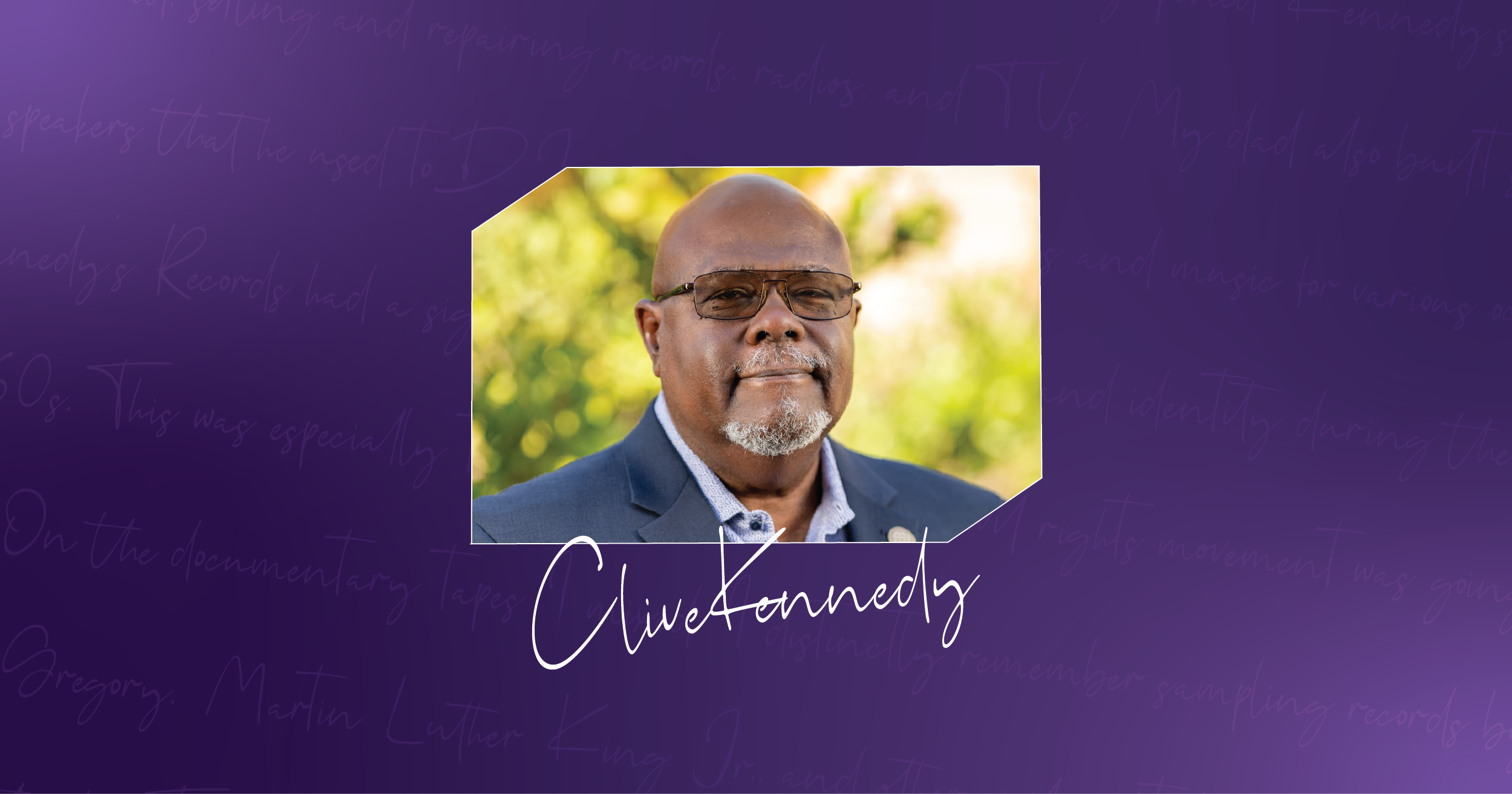Both of my parents emigrated from a small town in East Texas to Los Angeles during the 1940s when many African Americans moved north and west, seeking a more even playing field and a better life.
During the first few years in Los Angeles, my parents worked various jobs, including my mother’s domestic work. I only learned about that later because for most of the years I remember, my mom was a nurse at John Wesley County Hospital. My dad worked in grounds maintenance in downtown Los Angeles. But those were only their day jobs. I was about 9 when they opened Kennedy’s Records and Sound, selling and repairing records, radios, and TVs. My dad also built stereos and speakers that he used to DJ, providing public addresses and music for various occasions.
This is where I was first exposed to jazz music in an up close and personal way. At that time, we were making recordings for the entertainment side of the business, using first reel to reels and then four track and later eight track recordings. My dad would ask me to combine highlights of comedy albums, documentaries, and certain music mixes.
Kennedy’s Records had a significant impact upon my life and identity during the mid-60s. This was especially true in 1965 when the civil rights movement was going strong. On the documentary tapes I mixed, I distinctly remember sampling records by Dick Gregory, Martin Luther King Jr., and other civil rights leaders that we would play in the shop, which anyone could hear between there and the corner of Vernon and Broadway—a bustling intersection in the Figueroa Corridor of Los Angeles.
This was also the first of several periods of civil unrest that I experienced over subsequent decades.
Los Angeles in 1965
During what has become an all to frequent occurrence preceding civil unrest, police were involved in a traffic stop of an African American motorist in a Black neighborhood. Witnesses said it involved excessive force. Several nights of civil unrest—later called the Watts riots—resulted in deaths of more than 30 citizens and estimates topping $40 million in property damage. My family was concerned about the record shop during a particular night of burning and looting.
My parents did not allow me to set foot in the shop for several days, which was unusual. One night, my dad spent the night there alone. He posted several Soul Brother signs in an attempt to inform any rioters who might target the building of who worked there. The next morning, we were relieved that the shop suffered no damage despite the buildings on either side of it being burned to the ground and several deaths reported in the neighborhood. I recall my dad attributing successfully protecting his business to being well-known within the community as a Black business owner as well as being present and talking to many of the looters.
Such civil unrest resulted in sporadic progress in the civil rights movement over the next few decades. However, such progress is often met with more unrest, including the 1992 acquittal of officers caught on tape using excessive force against motorist Rodney King. The current protests appear to be a more pervasive level of dissent—voices joining to demand police and criminal justice reform.
Understanding how civil rights history should affect your practice
Many colleagues raise questions of why such events are relevant to our work as psychologists. Especially in forensic psychology, some practitioners believe that we should pursue a “justice is blind” position of neutrality and that race and ethnicity should only be a consideration when race overtly impacts the specifics of the case.
It is not considered essential that the clinician and client share the same ethnic background. Nor is it essential that a clinician has experienced a history of racial trauma to provide support for a client with symptoms of post-traumatic stress. Yet if a clinician has not learned about Jim Crow legislation or its impact across the South, the Zoot Suit Riots, or race massacres in Tulsa, Oklahoma, or Atlanta, perhaps that clinician is not the best therapist to assess for a history of racial trauma when evaluating a suicidal African American adolescent.
It is most important that a clinician is aware of their own biases. They must have some humility and openness to perspectives that differ from their own. A practitioner must have some familiarity with the checkered history of the United States, understanding that the American culture has provided opportunities for major atrocities to occur such as the Trail of Tears or Middle Passage when large numbers of lives were lost. Forces within our country continue to actively seek to deny civil rights or equality to large segments of our population. And individuals with such passions are able to operate secretly and thrive within such race-neutral settings.
I understand that I have been blessed to be successful despite overt and systemic racism, and I am aware of how my experiences have contributed to my own biases and blind spots. I understand that my parents’ values and priorities have directly contributed to how I live my life. Even today, especially in my work with adolescents, I am more likely to use music, art, and games to build a therapeutic alliance. I’m more likely to embrace my community and work to make life better for many. I realize my strengths are directly related to the experiences of my ancestors and many who have lived and died before I was even born. For all these reasons, I feel privileged and blessed.
Learn more about The Chicago School
To learn more about academic programs at The Chicago School, fill out the information below to request more information. You can also apply today through our application portal here.

